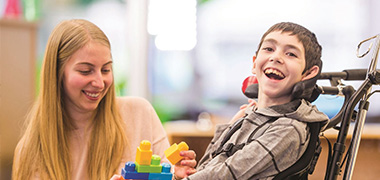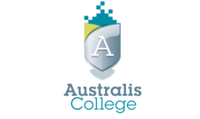
This role has a high level of AI exposure. While some human skills are required, many tasks could be automated or replaced by new technology.
Explore all careersDisability Team Leaders manage support teams, ensuring effective care for clients by delegating tasks, monitoring assessments, and providing hands-on assistance.
Get qualified to work as a Disability Team Leader with a course recognised across Australia. Speak to a training provider to learn more.






In Australia, a full time disability team leader generally earns $1,600 per week ($83,200 annual salary) before tax. This is a median figure for full-time employees and should be considered a guide only. As you gain more experience you can expect a potentially higher salary than people who are new to the industry.
 Courses.com.au Team
Courses.com.au Team
While there isn't clear data on specific disability team leader positions, aged and disability support worker jobs have grown strongly in recent years and are expected to continue to do so. As of May 2019, there were approximately 177,000 aged and disabled carer jobs in Australia. That number could potentially rise to 222,000 in 2024. Some reports indicate the possibility of about 35,800 job openings per year over that span.
Source: The Labour Market Information Portal - 2019 Occupational Projections and Australian Government Job Outlook
 Courses.com.au Team
Courses.com.au Team
Disability team leaders often need to earn more advanced qualifications and/or have more experience in the support industry than other disability team workers. This position will often require a Certificate IV in Disability. This qualification can take around 12 months to complete depending on study mode (online, on campus or a blend of both) and whether you are studying full or part time. Enrollees must also fulfil a work placement requirement to complete this certificate. Qualifications in Individual Support or other support studies that specialise in Aged and Disability Support can be helpful, though each disability team leader role will have different requirements.
 Courses.com.au Team
Courses.com.au Team
Browse occupations related to Disability Team Leader



Exploring the realm of Disability Team Leader courses in Australian Capital Territory provides an excellent opportunity for individuals aiming to elevate their careers in the community services sector. These courses cater to various skill levels, ensuring that both beginners and experienced learners can find suitable training options. Renowned Registered Training Organisations (RTOs) and industry-recognised institutions, such as Key 2 Learning and Mid City College, offer comprehensive programs tailored to meet the growing demands of the disability support field in the ACT.
For newcomers to the industry, the beginner course in Risk Management CHCSS00087 lays a solid foundation, guiding learners through essential risk assessment and management strategies vital for success in community services. Meanwhile, experienced professionals can further advance their qualifications by enrolling in various advanced courses such as the Certificate IV in Disability Support CHC43121 or the Advanced Diploma of Community Sector Management CHC62015. Such qualifications provide essential knowledge and skills for effective leadership in disability services across Canberra and its surrounding areas.
Graduating from disability courses can lead to various fulfilling job roles within the community services sector. Individuals may consider positions such as a Disability Support Worker, Community Care Worker, or Home Care Assistance Worker. Each of these roles contributes to enhancing the quality of life for individuals with disabilities, providing critical support and guidance shaped by the skills acquired during training.
The courses available within the Australian Capital Territory do not only focus on disability support; they are also interlinked with broader community services education. Students interested in a comprehensive understanding of the field can explore various Community Services courses that enhance their knowledge of social care frameworks, policy implementation, and ethical considerations in practice. All these elements are crucial for aspiring Care Coordinators and Behaviour Therapists, who play significant roles in the development and support of community programs in the ACT.
Enrolment in Disability Team Leader courses in Australian Capital Territory not only enhances personal skills but also opens pathways to vital leadership opportunities. As the demand for qualified professionals continues to rise, completing these training programs ensures that individuals are equipped with the expertise needed to lead and mentor teams effectively in the ever-evolving disability services landscape. Those interested in making a positive impact can explore the diverse options available to them today.